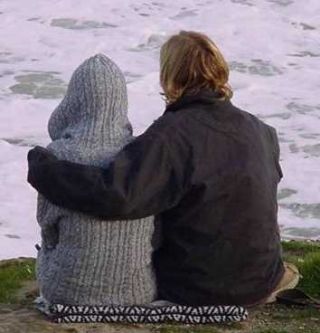Sexual Abuse
The Sexual Effects of Sexual Abuse
Why don't we hear much about these?
Posted August 2, 2012

I'm writing ths blog on the heals of National Clergy Sexual Abuse Awareness and Prevention Day, which was yesterday, August 1. I just discovered this when, while cleaning off my desk, I pulled out a printout of the July newsletter for PAVE (www.shatteringthesilence.com ), and opened to the page that explained yesterday's designation. "This campaign is necessary," it said, "because the issue of clergy sexual abuse is little understood by most people. Education and awareness are essential to both prevention and healing." I agree. My October, 2010 blog, dedicated to facts related to preventing clergy sexual abuse is still relevant and available on our site (see link at end of this blog).
Another aspect of sexual abuse that we need to understand more about concerns how being sexually violated in that way affects a person's sex life later. I had lunch with an colleague recently who has specialized in sex therapy during most of her long career as a marriage and family therapist. She was reflecting on the high number of sexual abuse survivors with whom she had worked because they were referred to her with sex problems. She commented about how sad their situations were, particularly those who'd never realized the connection and felt ashamed of themselves because of their symptoms. Symptoms that are really a natural reaction to what was done to them. The irony that we are such a sexualized culture and yet so many are experiencing sexual anguish is striking to me.
Last weekend I had the good fortune to interview someone who has dedicated most of her career to education and awareness and the healing of sexual abuse survivors: internationally recognized author/psychotherapist Wendy Maltz, author of "The Sexual Healing Journey: A Guide for Survivors of Sexual Abuse." This book has been a treasured resource for therapists, sexual abuse survivors and their partners, for many years and has recently been updated. My goal in the interview was to learn more about Wendy and her thoughts regarding the recent release of the 3rd edition/revised print of her book. Wendy is smart and delightful and I'm planning a comprehensive blog about our interview for next week. But for today I'm interested in telling you that part of our conversation was about cultural influences impacting sexual abuse and recovery, and one of Wendy's observations really stuck with me. She pointed out that with all the attention the media has invested in discourse about sexual abuse recently, still, we never hear anything about the sexual effects of sexual abuse.
Wendy's written information indicates that research on the sexual affects of sexual abuse is plentiful. It is now known that sexual abuse is a primary risk factor in sexual health, dysfunction, and intimacy problems. Some of the more common sexual problems linked to sexual abuse are:
* chronic sexual pain
* sexually transmitted infections
* unwanted pregnancy
* compulsive sexual behavior
* hi-risk sexual activity
* erection and orgasm problems
It's a long list, yes, but there is hope for healing, and I look forward to sharing with you some of Wendy's solid advice. In the meantime you may want to take a look at her website: www.HealthySex.com
__
Here is the link to my previous blog on preventing sexual abuse by clergy:
http://www.psychologytoday.com/blog/overcoming-child-abuse/201010/how-p…


